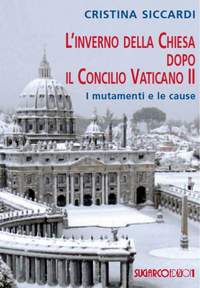Fr.Jean Marie Gleize, the Society of St.Pius X(SSPX) professor of ecclesiology who also teaches at the SSPX seminary in Econe says:
Note: Father Gleize says : "The past Magisterium affirms that outside the Catholic Church( in the heretical sects and schismatics who are considered as such) there is no salvific value and that Divine Providence does not use these sects as the means of salvation, Vatican II says exactly the opposite " (1)
The past Magisterium has affirmed outside the church there is no salvation and it is Archbishop Marcel Lefebvre himself who has said that non Catholics can be saved in their religion. So Vatican Council II would be in agreement with Archbishop Marcel Lefebvre.(2) However Vatican Council II does not state that non Catholics are saved in general in their religion.There is no such text.
If there was such clear text it would contradict Ad Gentes 7 which says all need faith and baptism.Fr.Gleize is using the false premise in the interpretation of LG 8 and UR 3 (p.128).
Ad Gentes 7 (3) and Lumen Gentium 14 refer to the ordinary means of salvation(Redemptoris Missio 55) . LG 16( invincible ignorance),LG 8 and LG 3 cannot rationally be considered the ordinary means of salvation.
When Archbishop Lefebvre said that a Hindu in Tibet could be saved in his religion he was speaking about a hypothetical case. We do not know any such case said Fr. Mauro Tranquillo yesterday (4). So if there is someone saved in another religion with the baptism of desire or in invincible ignorance it is not a known exception to the past Magisterial teaching on outside the church there is no salvation.
Archbishop Lefebvre has affirmed the dogma extra ecclesiam nulla salus which is the norm. He accepts the possibility of a non Catholic being saved in his religion and this hypthetical case would not contradict the dogma on salvation.
Fr.Jean Marie Gleize uses the false premise usually in the interpretation of Vatican Council II (5) and this is cited by Cristina Siccardi.(p.128).He interprets Vatican Council II (LG 8 and UR 3) with the false premise.
-Lionel Andrades
(1)
Nota di padre Gleize: "Il magistero anteriore afferma che al di fuori della Chiesa cattolica, nelle sette schismatiche ed eretiche prese come tali: ne vi è alcun valore salvifico e che la Divina Provvidenza non si serve di queste sette come dei mezzi di salvezza , il Vaticano II afferma esattamente il contrario"
I'Inverno della Chiesa deopo il Concilio Vatiano II- i mutamenti e le cause- Cristina Siccardi (Sugarco,Milano 2013) pp.128-133
2.
Consider a Hindu in Tibet who has no knowledge of the Catholic Church. He lives according to his conscience and to the laws which God has put into his heart. He can be in the state of grace, and if he dies in this state of grace, he will go to heaven.” (The Angelus, “A Talk Heard Round the World,” April, 2006, p. 5.)
Evidently,certain distinctions must be made. Souls can be saved in a religion other than the Catholic religion (Protestantism, Islam, Buddhism,etc.), but not by this religion. There may be souls who, not knowing Our Lord, have by the grace of the good Lord, good interior dispositions,who submit to God...But some of these persons make an act of love which implicitly is equivalent to baptism of desire. ("Against the Heresies",p.216)
3.
Therefore, all must be converted to Him, made known by the Church's preaching,
and all must be incorporated into Him by baptism and into the Church which is
His body. For Christ Himself "by stressing in express language the necessity of
faith and baptism (cf. Mark 16:16; John 3:5), at the same time confirmed the
necessity of the Church, into which men enter by baptism, as by a door. -Ad Gentes 7,Vatican Council II.
4.
5.
False Premise : We can physically see , know a Protestant in 2013 saved as such.
Conclusion:
Cases of imperfect communion with the Church are visible to us so they are known exceptions to extra ecclesiam nulla salus.
Without the False Premise: UR 3 refers to a possibility known only to God. Since it is unknown to us it cannot be an exception to the dogma on exclusive salvation.
False Premise: We can physically see, know a Jew or Hindu who is 'good and holy' and is saved in 2013.
Conclusion:
Cases of good and holy non Catholics who are saved or going to be saved, are known exceptions to the dogma extra ecclesiam nulla salus.
Without the False Premise: NA 2 is a possibility , a hypothetical case. It is irrelevant to the dogma on salvation.
False Premise: Those saved with the ' seeds of the Word' (AG 11 etc) are personally known to us. We can meet them.
Conclusion: Since these cases are personally known to us , they are visible exceptions to the dogma outside the church there is no salvation.
Without the False Premise: There are no known exceptions to the traditional teaching on other religions.NA 2 is not one of them.
_______________________________________________






